Teacher Guidance on Formative Assessment
This guidance is for teachers, teacher trainers and school leaders who wish to learn about using classroom assessment to monitor and improve learning.
What is formative assessment?
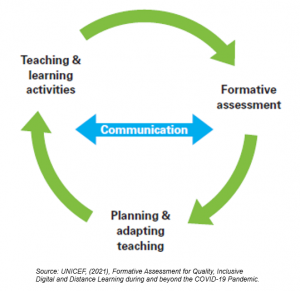 Formative assessment is the process of gathering information about what your students know and can do. This includes formal tests and quizzes. But it also includes more informal observation, purposeful dialogue, and everyday marking of assignments and homework. It is used to monitor the learning progress of each student, recognising that each student learns at a different pace. This information is then used to identify where each student needs further support. And also, how to help them progress.
Formative assessment is the process of gathering information about what your students know and can do. This includes formal tests and quizzes. But it also includes more informal observation, purposeful dialogue, and everyday marking of assignments and homework. It is used to monitor the learning progress of each student, recognising that each student learns at a different pace. This information is then used to identify where each student needs further support. And also, how to help them progress.
An important part of formative assessment is identifying mismatches between what is being taught (following the curriculum), and students’ actual learning level. For example, millions of children have not mastered foundational literacy and numeracy in spite of years of schooling. In South Asia, 58% of children are unable to read a simple text by age 10. Without foundational learning, students often fail to thrive later in school and it becomes increasingly difficult to catch up. Formative assessment is important to ensure assignments and activities in the classroom match the students’ level. If there is a mismatch, it can lead to a widening gap between what is being taught, and what a student needs to learn and progress.
Common misconceptions about formative assessment
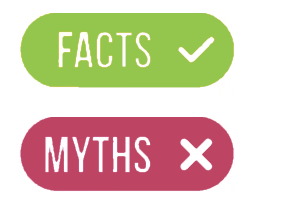
- Formative assessment is all about…assessment: The name itself can be a bit misleading, but formative assessment is not just about traditional testing. As indicated above, it also includes informal observation, purposeful dialogue, self-assessment, peer-assessment, and everyday marking of assignments and homework.
- Formative assessment is done at set times, such as the beginning and end of a course: It should in fact be a continous process, not a one-time event or even a series of events. It is the day-to-day process of assessing students (in different ways) and gathering evidence of learning. Evidence that is used – also on a daily basis – to inform both teachers and learners about what learners know and can do, and how to best help learners progress.
(see also our video on formative assessment addressing these misconceptions)
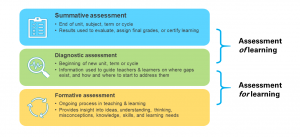
Learning recovery in the context of COVID-19
In the context of COVID-19, formative assessment is even more critical. Learning gaps between children have increased during school closures. Especially those with more limited access to devices and Internet have fallen further behind. As children return to school, teachers need to design lesson plans appropriate to the students’ current needs.
Teachers and students are busy, but it is important to take time for formative assessment: to reflect on what they have learned, identify areas where they are struggling, and ensure they get support in those areas. Those that have falled behind during school closures, need to know in which areas extra efforts are needed to catch up. It is the role of formative assessment to identify those areas.
Formative assessment does not need to be time consuming, and technology can sometimes help in conducting assessments more efficiently. For example, through innovative low-tech assessment solutions that also bring fun to the classroom. The experience of remote teaching and learning has made both teachers and learners more tech savvy – at least, for those with access to devices and connectivity. Those digital skills can also be leveraged to improve assessment practices in the classroom.
See also our webinar – an Introduction to Formative Assessment in the context of Learning Recovery.
Coming soon: UNICEF and UNESCO Asia Pacific webinar series on the Critical Role of Formative Assessment for Learning Recovery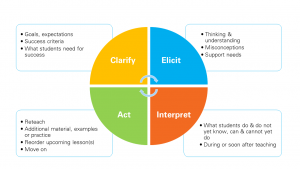
Further reading
- Formative assessment Learning Guide for Teachers and Trainer’s Manual – During and Beyond the COVID-19 Pandemic (UNICEF ECARO)
- Formative assessment for Foundational Literacy and Numeracy (see also Teaching at the Right Level)
- Using assessment to Inform Teaching and Teacher Training
- Formative assessment in context of Distance Education (UNICEF LACRO)
Coming soon
- A step by step guidance on formative assessment
- A guidance on formative assessment of early learners
- A guidance on formative assessment of children with disabilities
- A guidance on how to write good test items
